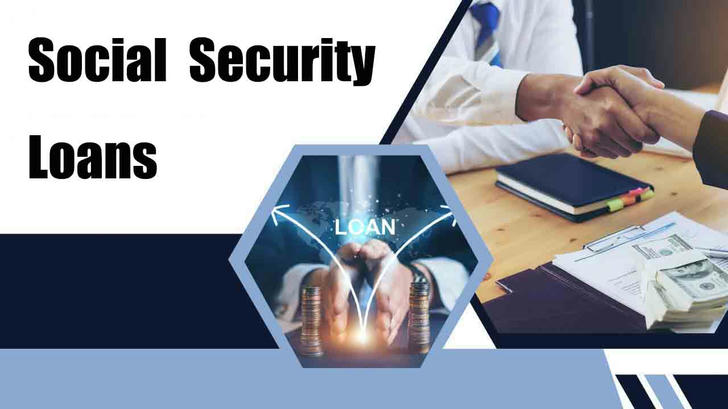How to get a social security loan with bad credit?
If you’re receiving Social Security benefits and have a low credit score, obtaining a loan might seem challenging. However, certain institutions specialize in offering social security loans to individuals with bad credit. These loans can help cover unexpected expenses, medical bills, or other financial needs. Here's a guide to understanding how these loans work and where you can find them.

Understanding Social Security Loans
Social security loans are designed to assist individuals who rely on Social Security benefits as a primary source of income. These loans often have flexible eligibility criteria and cater to those with less-than-perfect credit histories.
Key Features:
No or Low Credit Check: Lenders may prioritize income verification over credit scores, focusing on your ability to repay the loan through your benefits.
Flexible Terms: Loan amounts and repayment terms can be adjusted based on your financial situation.
Quick Approval: Many institutions offer fast approval processes, providing funds within a few days.
Social security income is raised through taxes to help provide income for those who cannot work. Social security and disability benefits are handled by the U.S. Federal Government’s Social Security Administration and are vital to the American economy. According to the Social Security Administration, nine out of 10 people who are 65 or older receive social security benefits.
Institutions Offering Social Security Loans
1. Use Social Security Income as Proof
Acceptable Income Source: Many lenders accept Social Security benefits, Supplemental Security Income (SSI), and disability payments as valid income sources for loan applications.
Documentation Needed: You may need to provide a benefit verification letter or bank statements showing direct deposits.
2. Types of Loans Available
Personal Loans: Some lenders specialize in personal loans for individuals with bad credit. These loans may have higher interest rates but can be accessible if you demonstrate sufficient income from Social Security.
Debt Consolidation Loans: If you have multiple debts, consolidating them into one loan can simplify payments and potentially lower interest rates. Payday Loans and Cash Advances: While these options are available, they often come with extremely high-interest rates (up to 400% APR) and should be approached with caution.
3. Finding Lenders
Online Lenders: Many online lenders cater specifically to borrowers with bad credit. They may consider factors beyond your credit score, such as income stability.
Credit Unions: Local credit unions often offer loans with more favorable terms and may be more willing to work with members who have bad credit.
Peer-to-Peer Lending: Platforms like Prosper or LendingClub allow individuals to borrow from others, which can sometimes lead to more flexible terms.
Conclusion
While obtaining a loan with bad credit can be challenging, several institutions are willing to provide social security loans to help those in need. By researching your options and preparing a solid application, you can find the financial assistance required to meet your needs. Always ensure that any loan you consider is affordable and aligns with your long-term financial goals.
